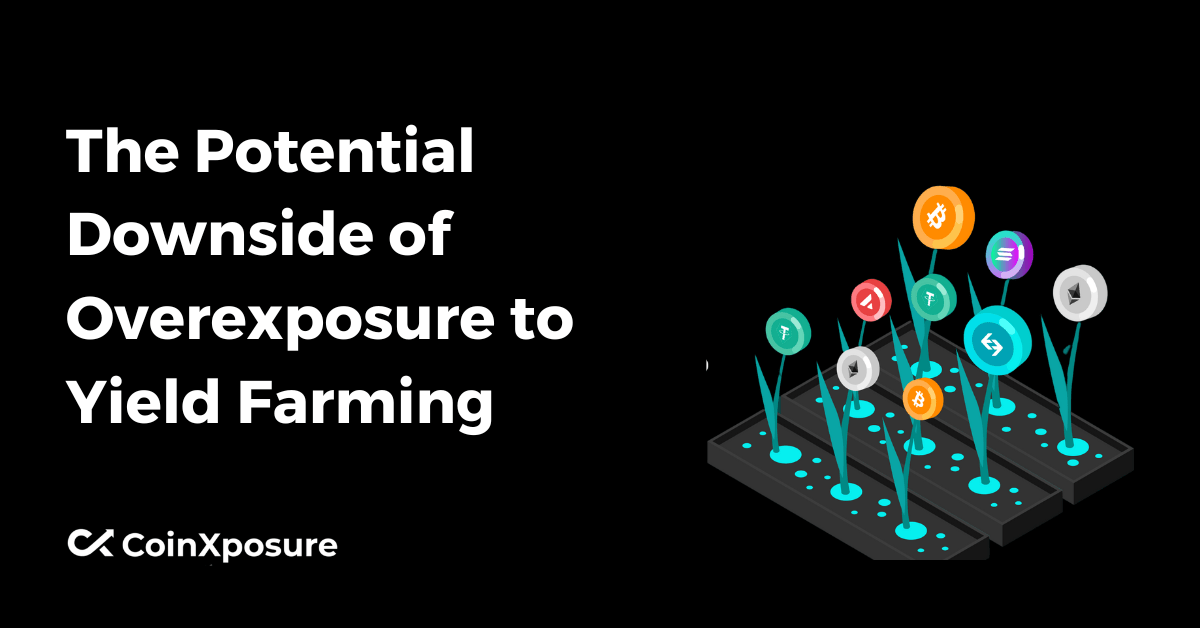Yield farming has emerged as a captivating avenue for crypto enthusiasts seeking to maximize returns on their digital assets.
While the potential for lucrative rewards has driven a surge in participation, it is crucial to recognize the potential downsides associated with overexposure to yield farming.
This exploration delves into the risks encompassing market volatility, security vulnerabilities, regulatory uncertainties, and behavioral pitfalls that individuals may encounter when navigating the dynamic landscape of yield farming.
Understanding these challenges is paramount for fostering responsible and informed engagement in the ever-evolving world of decentralized finance.
Potential Downsides of Yield Farming
The potential downsides of overexposure to yield farming encompass a spectrum of risks that participants should be mindful of:
- High-Risk Nature
- Security Concerns
- Regulatory Uncertainties
- Sustainability Concerns
High-Risk Nature
Market Volatility: Yield farming often involves volatile assets, exposing participants to significant price fluctuations.
Impermanent Loss: Liquidity provision may lead to impermanent loss, where the value of assets changes compared to simply holding them.
Security Concerns
Smart Contract Vulnerabilities: The reliance on smart contracts introduces the risk of bugs or vulnerabilities, potentially resulting in financial losses.
Hacking Risks: Yield farming protocols and platforms may become targets for malicious attacks, jeopardizing the security of participants’ funds.
Regulatory Uncertainties
Evolving Legal Landscape: Decentralized finance’s regulatory environment is evolving, leading to uncertainty about compliance requirements and potential legal implications.
Compliance Challenges: Participants may face challenges in adhering to regulatory frameworks, especially as authorities worldwide grapple with adapting to the fast-paced developments in the crypto space.
Sustainability Concerns
Environmental Impact: Some blockchain networks utilized for yield farming may have environmental concerns, raising questions about the sustainability of certain practices.
Long-Term Viability: The viability of yield farming models over an extended period is uncertain, considering the dynamic nature of the decentralized finance ecosystem.
Understanding and navigating these potential downsides is crucial for participants to make informed decisions and mitigate risks associated with overexposure to yield farming.
Behavioral risks of Yield Farming
Behavioral risks associated with overexposure to yield farming can significantly impact participants’ decision-making and financial well-being:
- Speculative Behavior
- Herd Mentality
- Lack of Understanding
Speculative Behavior
Excessive Risk-Taking: Participants may succumb to the allure of high returns, engaging in speculative behaviors beyond risk tolerance.
Lack of Rational Decision-Making: Emotional responses to market movements can lead to impulsive actions, potentially resulting in financial losses.
Herd Mentality
Following Trends: The tendency to follow popular trends and strategies without thorough understanding may lead to crowded positions, exacerbating risks during market shifts.
Overemphasis on FOMO: Fear of missing out (FOMO) can drive participants to make hasty decisions based on others’ actions rather than thoughtful analysis.
Lack of Understanding
Complexity of Instruments: Yield farming involves intricate financial instruments and concepts that all participants may not fully understand.
Inadequate Research: Insufficient research and understanding of the underlying protocols and projects can contribute to poor decision-making and increased vulnerability.
Awareness of these behavioral risks is essential for participants to cultivate a disciplined and informed approach to yield farming, fostering a more sustainable and responsible engagement in decentralized finance.
Strategies to Mitigate Risks in Yield Farming
Mitigating risks in yield farming requires a thoughtful and strategic approach. Here are key strategies to help participants navigate potential pitfalls:
- Diversification
- Due Diligence on Projects
- Risk Management Practices
- Staying Informed
Diversification
Spread Investments: Diversify assets across multiple projects and protocols to minimize the impact of poor performance or unexpected events in a single investment.
Due Diligence on Projects
Thorough Research: Conduct comprehensive research on the projects and protocols involved in yield farming to understand their fundamentals, security measures, and long-term viability.
Risk Management Practices
Set Clear Objectives: Establish clear financial goals and risk tolerance before participating, helping avoid impulsive decisions during periods of market volatility.
Use Stop-Loss Mechanisms: Implement stop-loss orders to limit potential losses and protect against rapid market downturns.
Staying Informed
Continuous Learning: Stay updated on developments in the decentralized finance space, regulatory changes, and potential risks associated with specific projects.
Community Engagement: Participate in community forums and discussions to gain insights from experienced participants and stay informed about emerging trends.
While these strategies can help mitigate risks, participants should remain vigilant, adapt to changing market conditions, and always exercise caution when engaging in yield farming activities.
Conclusion
While yield farming offers enticing opportunities for maximizing returns in the decentralized finance landscape, participants must acknowledge and address the associated risks.
The high-risk nature, security vulnerabilities, regulatory uncertainties, and behavioral pitfalls demand a cautious and informed approach.
Mitigating these risks requires strategic actions, such as diversifying investments, conducting thorough due diligence, implementing risk management practices, and staying well-informed about the evolving decentralized finance ecosystem.
Participants must also be mindful of speculative behaviors and the influence of herd mentality, fostering a disciplined and rational approach to decision-making.
Navigating the complex terrain of yield farming demands a balance between seeking opportunities and managing risks responsibly.
As the decentralized finance space continues to evolve, staying attuned to market dynamics and regulatory developments will be crucial for participants to contribute to a sustainable and resilient financial ecosystem.












